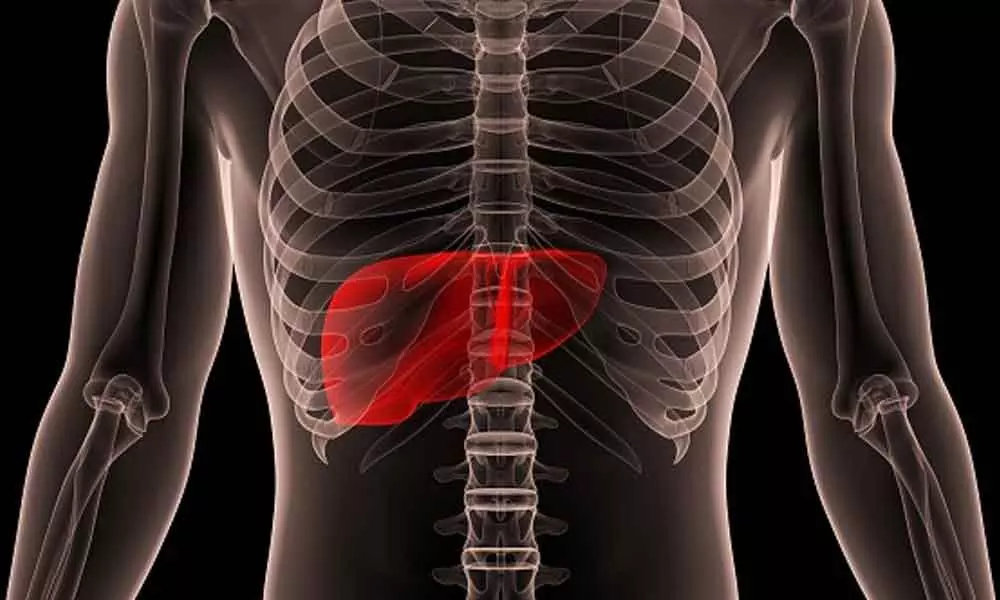Hepatitis C patients cured with antiviral medicines less likely to be hospitalized, says study

Representational Image
Hepatitis C is defined as an infection caused by a virus that attacks the liver and leads to inflammation. The virus is spread by contact with contaminated blood; for example, from sharing needles or from unsterile tattoo equipment.
Hepatitis C is defined as an infection caused by a virus that attacks the liver and leads to inflammation. The virus is spread by contact with contaminated blood; for example, from sharing needles or from unsterile tattoo equipment. Recent research has identified that patients with hepatitis C, when treated with direct-acting antiviral medicines, were less likely to be hospitalized. The study was published in 'Clinical Infectious Diseases'.
The research was carried out by researchers at Henry Ford Health System, as part of a national hepatitis C collaborative. They reported that patients with chronic hepatitis C who were treated with direct-acting antiviral medicines are less likely to be hospitalized or seek emergency care for liver and non-liver related health issues. The study underscored the extraordinary effect of these newer antivirals, which have been shown to cure hepatitis C in 98 per cent of patients who take them. Patients are said to be cured when the virus is no longer detectable in their blood.
"The findings of our study show that curing hepatitis C not only gets rid of the virus, it also improves the overall health of patients," said Stuart Gordon, M.D., Director of the Division of Hepatology at Henry Ford and the study's lead author. "This is consistent with our earlier studies that showed effective treatment of hepatitis C also reduces the risk of patients developing other health conditions like diabetes, kidney disease, stroke and heart attacks." According to federal data, at least 2.4 million people are living with hepatitis C in the United States and most don't know they have the virus. As a result, they are at risk for life-threatening liver disease and cancer. Rates of new liver cancer cases have increased 38 per cent from 2003 to 2012.
The Henry Ford-led study was conducted in collaboration with researchers from Geisinger Health System, Kaiser Permanente in Hawaii and Oregon and Centers for Disease Control and Prevention. They comprise the Chronic Hepatitis Cohort Study, which has been collecting and analyzing data drawn from the four health systems to assess the impact of hepatitis C and B on the U.S. population. This observational study is believed to be the first to examine healthcare utilization involving hepatitis C patients with and without advanced liver disease and treated with the direct-acting antivirals, or DAAs.
Researchers analyzed data of 6,100 patients - half who were treated with DAAs and half who were not. The antivirals are taken orally once a day for eight to 12 weeks. Side effects are mild if any. The medications stop the hepatitis C virus from multiplying in the body and can prevent long-term complications like liver damage.
Key findings of the study were: first, patients treated with DAAs had lower rates of hospitalization and shorter stays for liver and non-liver related health issues compared to those who did not receive DAAs. And second, patients treated with DAAs had fewer visits to the Emergency Department for liver disease-related issues compared to those who did not receive DAAs.
Researchers did not quantify the potential cost savings as part of the study. Still, Dr Gordon said the projected cost savings would be substantial. People being cured of hepatitis C leads to less incidence of chronic medical issues associated with the disease, he said.
"There are tangible downstream benefits from these antiviral treatments," he said. "If you're cured of the virus, your overall health will get better and you're less likely to be hospitalized for some other health condition." A one-time universal screening for hepatitis C is recommended for all adults ages 18 and older including pregnant women during each pregnancy. Regular hepatitis C testing is recommended for people with ongoing risk factors such as drug use with needles, on dialysis and those born between 1945 and 1965.
Last year, Michigan lifted restrictions that prevented some people from getting access to antiviral treatment. "Given the remarkable effectiveness and benefits of these DAAs, everyone with hepatitis C should get treated and treated soon," Dr. Gordon said.















